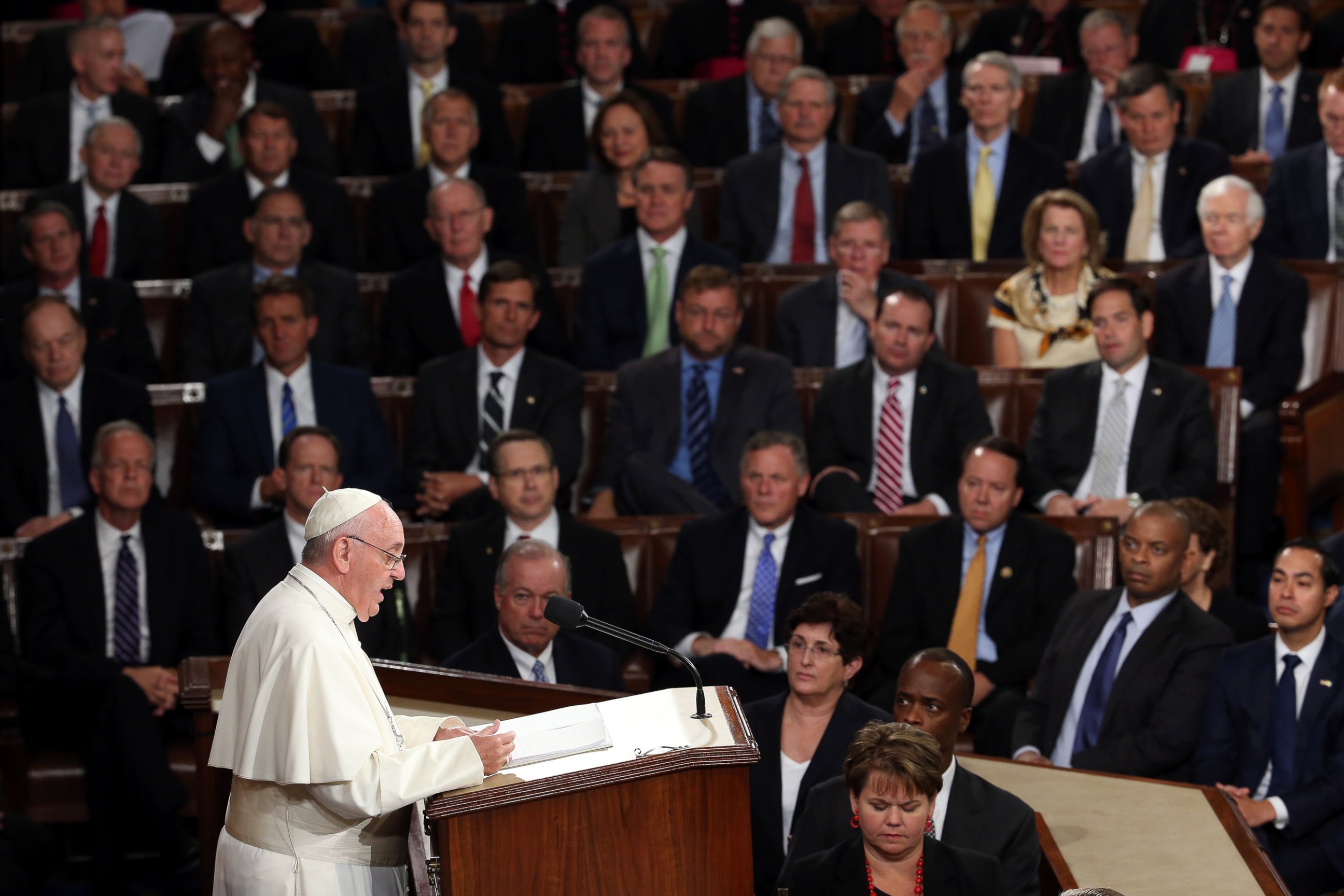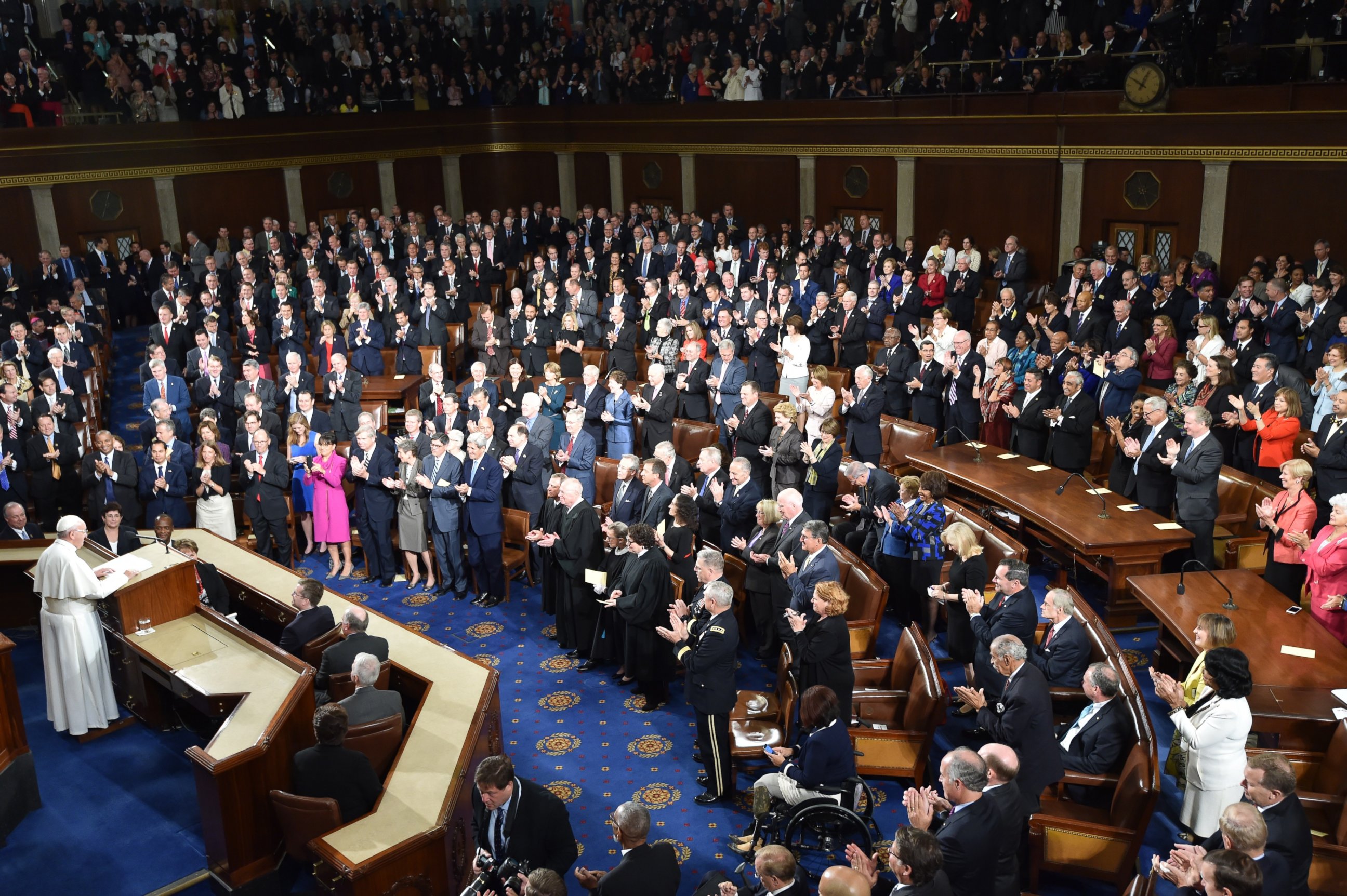Read Pope Francis' Historic Speech to Congress
He highlighted four notable Americans in his speech.
— -- Pope Francis isn't above sharing the spotlight with others.
The pontiff structured much of his historic speech to Congress by highlighting the work and lives of four Americans.
Two are universally known -- President Abraham Lincoln and the Rev. Martin Luther King Jr. -- while two others may prompt a flurry of Google searches. Dorothy Day, the founder of the Catholic Worker Movement and known socialist, and Thomas Merton, a U.S. Catholic writer.
Pope Francis also touched on some larger issues, including divisive ones like climate change, the death penalty and threats to "the family" and marriage.

The policy issue to get the most attention from the pope, however, was immigration and the refugee crisis.
Using a maxim that everyone could understand, he cited the Golden Rule, which originates from the book of Matthew.
"Our world is facing a refugee crisis of a magnitude not seen since the Second World War. This presents us with great challenges and many hard decisions," Pope Francis said, adding later that "Let us remember the Golden Rule: 'Do unto others as you would have them do unto you.'"

Here is the full text of the speech Pope Francis was slated to give to Congress, as translated by the Holy See:
Mr. Vice-President,Mr. Speaker,Honorable Members of Congress,Dear Friends,
I am most grateful for your invitation to address this Joint Session of Congress in “the land of the free and the home of the brave”. I would like to think that the reason for this is that I too am a son of this great continent, from which we have all received so much and toward which we share a common responsibility.
Each son or daughter of a given country has a mission, a personal and social responsibility. Your own responsibility as members of Congress is to enable this country, by your legislative activity, to grow as a nation. You are the face of its people, their representatives. You are called to defend and preserve the dignity of your fellow citizens in the tireless and demanding pursuit of the common good, for this is the chief aim of all politics. A political society endures when it seeks, as a vocation, to satisfy common needs by stimulating the growth of all its members, especially those in situations of greater vulnerability or risk. Legislative activity is always based on care for the people. To this you have been invited, called and convened by those who elected you.
Yours is a work which makes me reflect in two ways on the figure of Moses. On the one hand, the patriarch and lawgiver of the people of Israel symbolizes the need of peoples to keep alive their sense of unity by means of just legislation. On the other, the figure of Moses leads us directly to God and thus to the transcendent dignity of the human being. Moses provides us with a good synthesis of your work: you are asked to protect, by means of the law, the image and likeness fashioned by God on every human face.




